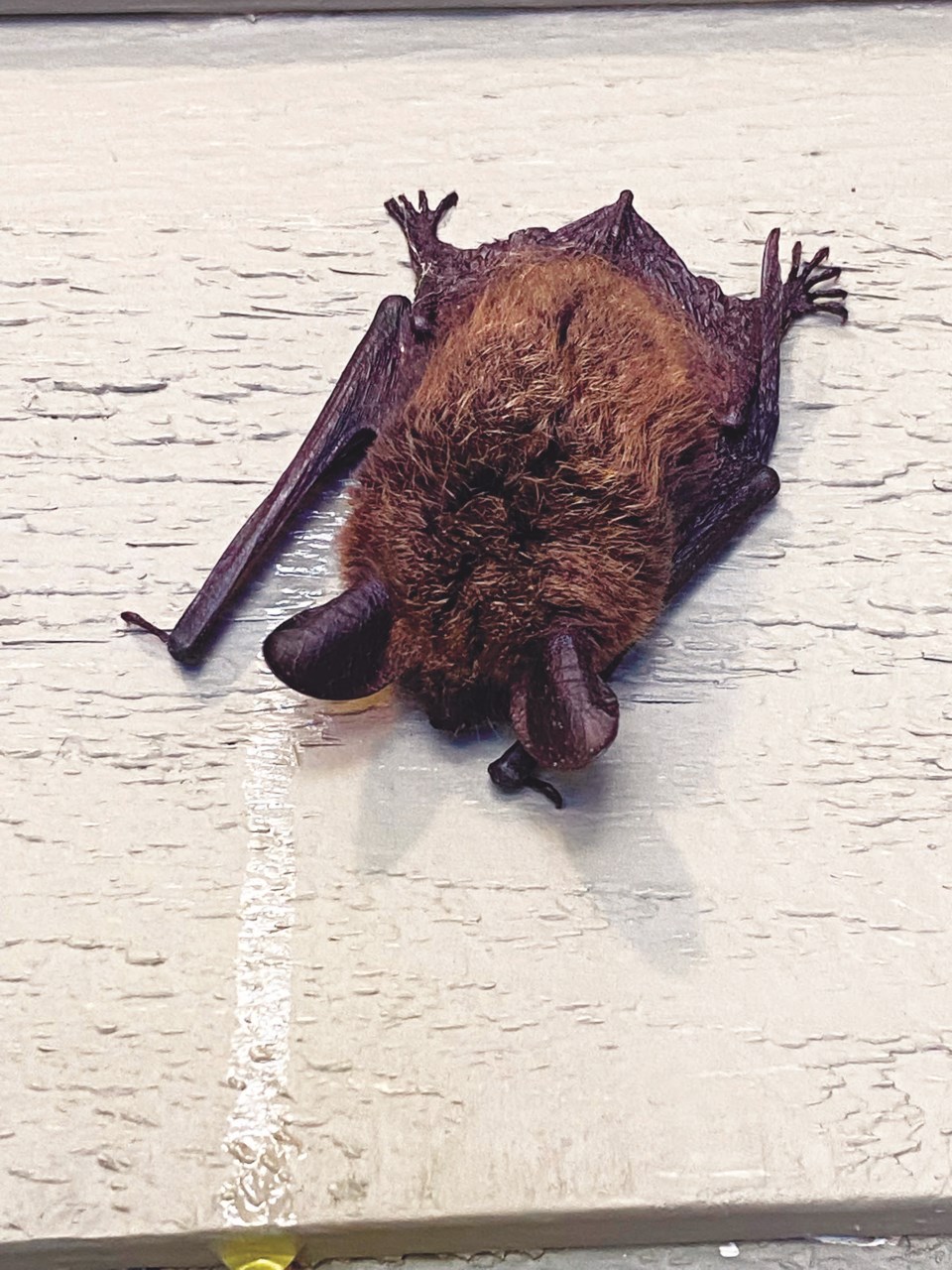Have you spotted a bat clinging to the side of your house, hanging in an entryway, or even flying into your house? Mid‑summer is when bats are most likely to surprise people in unusual places. These unexpected visitors are usually young bats, learning to fly for the first time.
Bats are protected under the BC Wildlife Act, which makes it illegal to harm, harass or kill them. If a bat is roosting in a spot safely away from pets and children, leave it alone and it will usually fly off after sunset. If a bat must be moved, wear thick gloves and long sleeves. Use a trowel, small box, or cotton cloth bag to gently pick it up and release it. It may fly off or you can place it at head height on a nearby tree where it can roost safely.
Never touch a bat with bare hands. Fewer than one percent of bats in BC carry rabies, but any bat bite or scratch must be taken seriously. Wash the area with soap and water for 15 minutes and contact public health or your doctor promptly. Teach children never to touch, play with, or try to rescue a bat. Keep cats indoors in the evening to reduce the risk to both bats and your cat, and contact your veterinarian if a pet has any contact with a bat.
Please report all bat roosting observations or dead bats to [email protected] or 604‑989‑1007. The Wildlife Project thanks all partners and funders who support bat conservation on the Sunshine Coast including Habitat Conservation Trust Foundation, BC Conservation Foundation, Fish and Wildlife Compensation Program, Gencon Foundation, and the Government of BC. To learn more about bats, please visit www.bcbats.ca.



